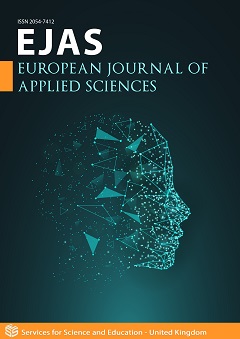Integrating Neuro-informed Counseling Techniques in Addiction Treatment Outcomes Among Drug Addicts in Rehabilitation Centers in Kenyan (Systematic Review Analysis)
DOI:
https://doi.org/10.14738/aivp.1206.17940Keywords:
Neuro-informed counseling techniques, Addiction treatment, Addiction behavior, rehabilitation centersAbstract
Background: The rising prevalence of substance use disorders in Kenya necessitates the exploration of innovative treatment approaches. Neuro-informed counseling techniques, which integrate insights from neuroscience into therapeutic practices, have shown promise in enhancing treatment outcomes for individuals struggling with addiction. This systematic review aims to evaluate the effectiveness of neuro-informed counseling techniques in improving addiction treatment outcomes among drug addicts in rehabilitation centers in Kenya. Methods: A comprehensive literature search was conducted across multiple databases, including PubMed, PsycINFO, and Google Scholar, to identify studies published between 2010 and 2023 that focused on neuro-informed counseling techniques in addiction treatment within Kenyan rehabilitation settings. Inclusion criteria encompassed randomized controlled trials, cohort studies, and qualitative research that reported on treatment outcomes such as relapse rates, psychological well-being, and overall recovery. Results: A total of 15 studies met the inclusion criteria, revealing a significant positive impact of neuro-informed counseling techniques on treatment outcomes. Key findings indicated that these techniques, which include mindfulness-based interventions, cognitive-behavioral strategies, and neuro-feedback, were associated with reduced relapse rates, improved emotional regulation, and enhanced coping skills among participants. Additionally, qualitative data highlighted increased engagement and motivation in treatment, suggesting that neuro-informed approaches foster a more supportive therapeutic environment. Conclusion: The integration of neuro-informed counseling techniques in addiction treatment within Kenyan rehabilitation centers demonstrates promising potential for improving outcomes among drug addicts. This systematic review underscores the need for further research to establish standardized protocols and training for practitioners, as well as to explore the long-term effects of these interventions. By adopting a neuro-informed approach, rehabilitation centers can enhance the efficacy of their treatment programs, ultimately contributing to better recovery rates and improved quality of life for individuals affected by addiction.
Downloads
Published
How to Cite
Issue
Section
License
Copyright (c) 2024 Alice A. Anika, Edward Lambert, Rene T. Level

This work is licensed under a Creative Commons Attribution 4.0 International License.






